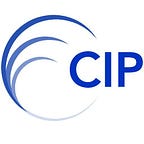The U.S. is not a reliable partner in the struggle against COVID-19 — Especially in Africa
Every two weeks or so, when it updates its data on U.S. government aid to fight the coronavirus overseas, the State Department claims that, “The United States Continues to Lead the Global Response to COVID-19.” Indeed that is the title given to each of its Fact Sheet Updates since late March 2020. But this is a false claim with consequences. For Africa it means that urgently needed assistance is not forthcoming from the United States. Moreover, Trump’s decision to withdraw from the World Health Organization (W.H.O.) and deny resources to that crucial U.N. agency in the midst of the pandemic will have a disproportionate and devastating impact in Africa.
Although the U.S. has announced “commitments” of funding to 53 African nations in response to the global virus, Washington has delivered little of this aid. According to the New York Times, the State Department and U.S.A.I.D. have failed to spend more than 75 percent of the humanitarian aid that Congress provided three months ago to help overseas victims of the virus.
Last week, CIP’s Africa Program produced a Fact Sheet on U.S. Aid to Africa in Response to COVID-19 that shows a total of $385 million in “commitments” to African nations or about 30% of the worldwide total of the $1.2 billion in U.S. coronavirus help pledged to date. In a letter to USAID acting administrator John Barsa signed by more than two dozen international aid groups, including Save the Children, Care USA and World Vision, relief experts said they were “increasingly alarmed” that “little to no U.S. humanitarian assistance has reached those on the front lines.”
The U.S. is not committing enough aid to Africa, and is not even delivering most of what it has committed. In other areas where the U.S. could be helpful, the Trump Administration has adopted outright anti-African positions. For example, the administration has refused to support the African call for debt cancellation. Many if not most African nations are spending more on servicing debts to external creditors such as the World Bank, the International Monetary Fund, the European Union and China, than they are spending on healthcare for their own citizens. Washington has focused its rhetoric on Chinese lending practices rather than pushing for the large multilateral lending agencies — where it exercises the greatest influence — to cancel the debts of those African countries in greatest need.
The lack of empathy and solidarity with Africans on the part of the Trump administration should not come as a surprise to anyone. Racism has always been a significant determinant in the formulation of the administration’s approach to Africa policy resulting in lower priority and resources being devoted to the continent. From the president’s own repeated racist remarks about Africans and Africa, to policy actions like the travel bans imposed on African nations, to Washington’s attacks on the few international organizations headed by Africans — the W.H.O. and the International Criminal Court — we see the persistent and pernicious impact of racism on U.S. Africa policy.
The impact of the U.S. withdrawal from the W.H.O. by itself will be felt most acutely in Africa. The continent receives more than double the budget allocation of any of the five other regions that the W.H.O. administers globally. Epidemiologists, NGO workers and public health experts across Africa warn that any threat to W.H.O. funding not only harms the ability of countries with weak healthcare systems to fend off COVID-19, but is also damaging to the longer-term fights against other infectious diseases with the potential to become pandemics.
Donald Trump has no intention of working collaboratively with African nations but the African diaspora in the United States continues to organize with allies here to demand that more of America’s resources be committed to Africa. Recently, AdNA (the Advocacy Network for Africa) issued a statement demanding the following:
- More resources for Africa to help combat COVID-19
- Support for African country debt cancellation
- Restored funding of the W.H.O.
- Guarantees for equal access to vaccines for COVID-19 whenever they become available.
That’s an agenda we should all support!
The CIP Africa Team
